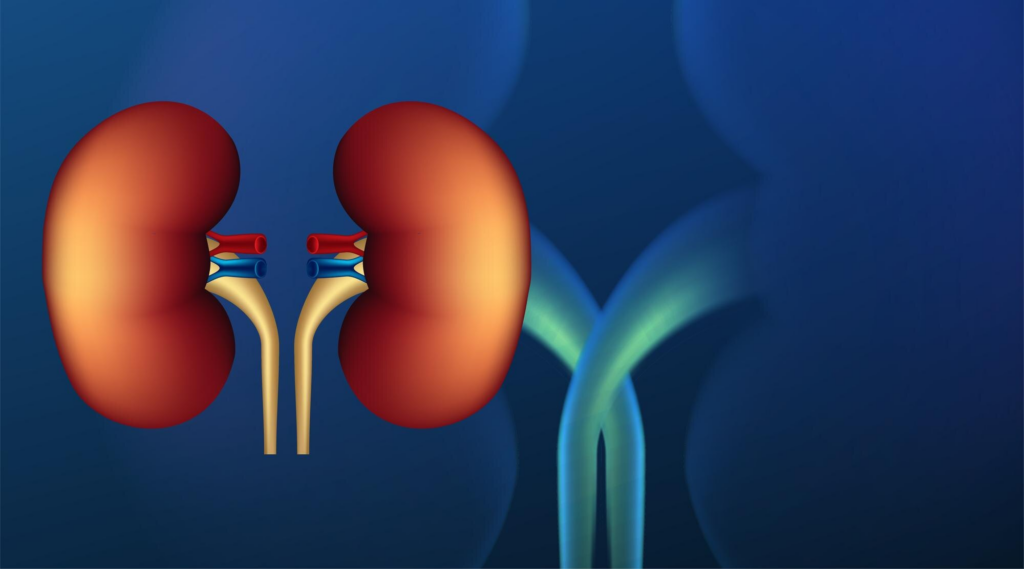A subtle yet dangerous illness, kidney disease can have a major negative influence on your general health.
It’s critical to recognize the warning signals that your kidneys are in risk since early intervention can stop more problems. To safeguard your kidneys and general health, see a doctor right away if you observe these symptoms.
Understanding the Role of the Kidneys
Your kidneys are essential organs that put up endless effort to filter your blood, eliminate waste, maintain electrolyte balance, and control blood pressure.
These bean-shaped organs, which are situated just below the rib cage on either side of your spine, also generate hormones that support the formation of red blood cells and preserve bone health.
About 120 to 150 quarts of blood are filtered daily by healthy kidneys, and 1-2 quarts of urine are produced to ensure that toxins are eliminated.

What Is Kidney Disease?
When the kidneys are unable to function properly, renal disease develops. High blood pressure, diabetes, autoimmune diseases, infections, and genetic predispositions are among the causes.
Renal disease can develop into renal failure if left untreated, necessitating dialysis or a kidney transplant.
You can take action before it’s too late by recognizing the warning signals that your kidneys are in risk.
10 Warning Signs Your Kidneys May Be in Danger
1. Changes in Urination
One of the earliest indicators that your kidneys are in risk is a change in your urine habits. These consist of:
- Urine production has increased, particularly at night.
- Reduced production of urine
- Urine that is foamy or bubbly could be a sign of protein leakage.
2. Fatigue and Weakness
Erythropoietin is a hormone released by the kidneys that aids in the production of red blood cells.
Anemia can occur when kidney function deteriorates, leading to weakness, exhaustion, and trouble focusing.
3. Swelling (Edema)
Swelling results from fluid retention brought on by impaired renal function in the:
- Legs
- Hands
- Face
- Abdomen
4. Persistent Back Pain
Untreated kidney stones or urinary tract infections may be the cause of severe back pain or pain beneath the ribs.
5. Unexplained Weight Loss or Loss of Appetite
Due to waste accumulation in the blood, kidney illness can result in weight loss and appetite reduction. Even if you haven’t eaten much, you might feel satisfied.
6. Nausea and Vomiting
Especially in the morning or after meals, nausea or vomiting are frequently brought on by waste buildup in the bloodstream.
7. Difficulty Sleeping
Sleep issues are commonly reported by people with renal disease because of:
- Muscle spasms at night
- The condition known as restless legs
- Regular urination that interferes with sleep
8. Metallic Taste in the Mouth
A common sign of uremia, which is brought on by an accumulation of waste materials in the blood, is a persistent metallic taste.
9. Muscle Cramps and Twitching
In particular, low calcium or high phosphorus levels can cause electrolyte imbalances that cause severe cramps and twitching of the muscles.
10. Itchy Skin
Severe, widespread itching may result from the buildup of toxins brought on by impaired renal function.
How to Reduce Your Risk
To prevent kidney disease from progressing and to maintain the health of your kidneys:
- Drink plenty of water.
- Reduce your intake of processed foods and salt.
- Control long-term health issues such as diabetes and hypertension.
- Steer clear of overusing NSAIDs and medications.
- Obtain routine examinations, particularly if kidney issues run in your family.
When to See a Doctor
If you detect any warning signals your kidneys are in danger, don’t disregard them.
Make an appointment for a comprehensive assessment with your healthcare provider, which may involve imaging studies to evaluate kidney function, blood testing, and urine tests.
Preventing permanent damage and maintaining kidney health need early action.
Conclusion
You can save your life by recognizing the warning indications that your kidneys are in danger.
You can preserve your general health and safeguard your kidneys by being watchful and getting medical help as soon as something seems off.
Don’t hesitate; pay attention to your body and take immediate action if something feels strange.





